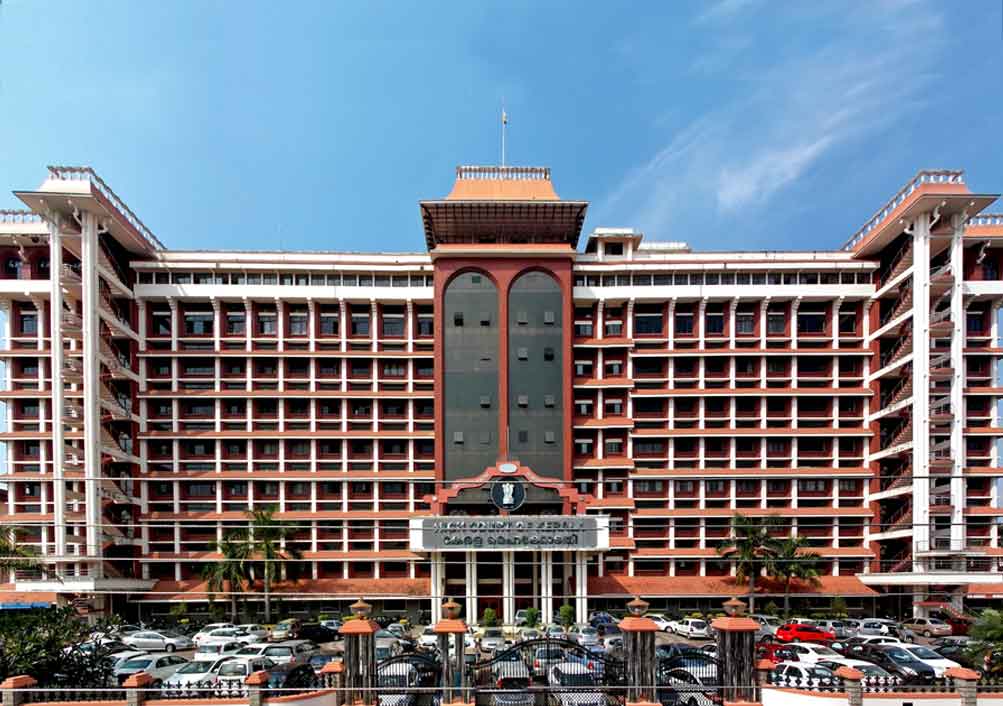Manipulation of female body through all forms of penetrative sexual assault amounts to rape: Kerala High Court

Read Judgement: Santhosh vs. State Of Kerala
LE Staff
Kochi, August 6, 2021: The Kerala High Court has ruled that the definition of rape as contained in section 375 of Indian Penal Code would include all forms of penetrative sexual assault onto any part of the body so manipulated to get the feeling or sensation of an orifice.
Holding that the word manipulation by itself includes an artificial creation, the High Court said it includes the effect of manipulating the thighs to be held tightly together to cause penetration of the crevice, when the muscles engulf the object which penetrates to create or simulate the same effect as in a normal penile-vaginal intercourse.
“It is established from the evidence of prosecution witness that, the appellant had committed the offence of rape as he had penetrative sexual act between the thighs of the victim held together; an act of manipulation of the body of the victim to obtain sexual gratification, which culminated in ejaculation,” held the Bench of Justice K. Vinod Chandran and Justice Ziyad Rahman A.A.
The Bench further observed that the expression “cause penetration into the vagina, urethra, anus or any part of body of such woman” as used u/s 375 IPC requires wider interpretation so as to include any orifices naturally present or any part of the body manipulated to simulate a penetration and have the effect/sensation of an orifice.
While partly allowing the appeal and finding the appellant guilty of offence under section 376(1) r/w/s 375(c) IPC, the High Court directed for life imprisonment of the appellant.
The High Court, however, held the appellant/accused not guilty under sections 11(i) r/w/s 12, Sec 9(1)(m) r/w/s 10, Sec 3(c) r/w/s 5(m) and Section 6 of POCSO Act, 2012 as the prosecution failed to prove the survivor’s age. The High Court also found the appellant not guilty under sections 376(2)(i) and Section 377 of IPC.
The case originated from a medical camp conducted in Thirumarady Government School in the state where the victim voluntarily appeared along with her mother for addressing her constant complaint of stomach pain. During the course of examination, the victim revealed certain incidents of sexual assault committed on her by her neighbour, the accused in the case, particularly the one committed six months prior to the said date.
The doctor therefore informed the mother of the victim immediately, and instructed her to make a complaint before the police. Presumably, having serious concerns about the consequences of the revelation upon the reputation of the family and the social stigma on the child, she failed to make a complaint immediately. Later when inquiries started coming in from Child Line authorities, she submitted a complaint and after recording the FIS of the victim, charge sheet was filed by the police, cognizance of which was taken by the Special Court, and the accused stood trial.
After evaluation of the entire materials, the Special Court found the appellant/accused guilty of the offences and sentenced him to life imprisonment.
“By a metaphor the word intercourse, like the word commerce, is applied to the relations of the sexes. Here also there is the temporary visitation of one organism by a member of the other organization, for certain clearly defined and limited objects. The primary object of the visiting organization is to obtain euphoria by means of a detent of the nerves consequent on the sexual crisis. But there is no intercourse unless the visiting member is enveloped at least partially by the visited organism, for intercourse connotes reciprocity,” noted the Bench.
“Therefore, to decide whether there is intercourse or not. What is to be considered is whether the visiting organ is enveloped at least partially by the visited organism. In intercourse between the thighs, the visiting male organ is enveloped at least partially by the organism visited, the thighs: the thighs are kept together and tight,” it said further.
Coming to the term ‘penetration’, the Bench opined that section 375 as amended by Act 13 of 2013, widened the definition of ‘rape’ by expanding its ambit beyond the penile penetrative assault into vagina.
As the prosecution failed to provide any evidence to prove the age of the victim, the offences under the provisions of the POCSO Act and also u/s 376(2)(i) of the Indian Penal Code were not attracted. Although, the sexual acts committed by the appellant is sufficient to attract the offence of section 375(c) r/w/s 376 (1) of IPC, added the Bench.
Sign up for our weekly newsletter to stay up to date on our product, events featured blog, special offer and all of the exciting things that take place here at Legitquest.




Add a Comment